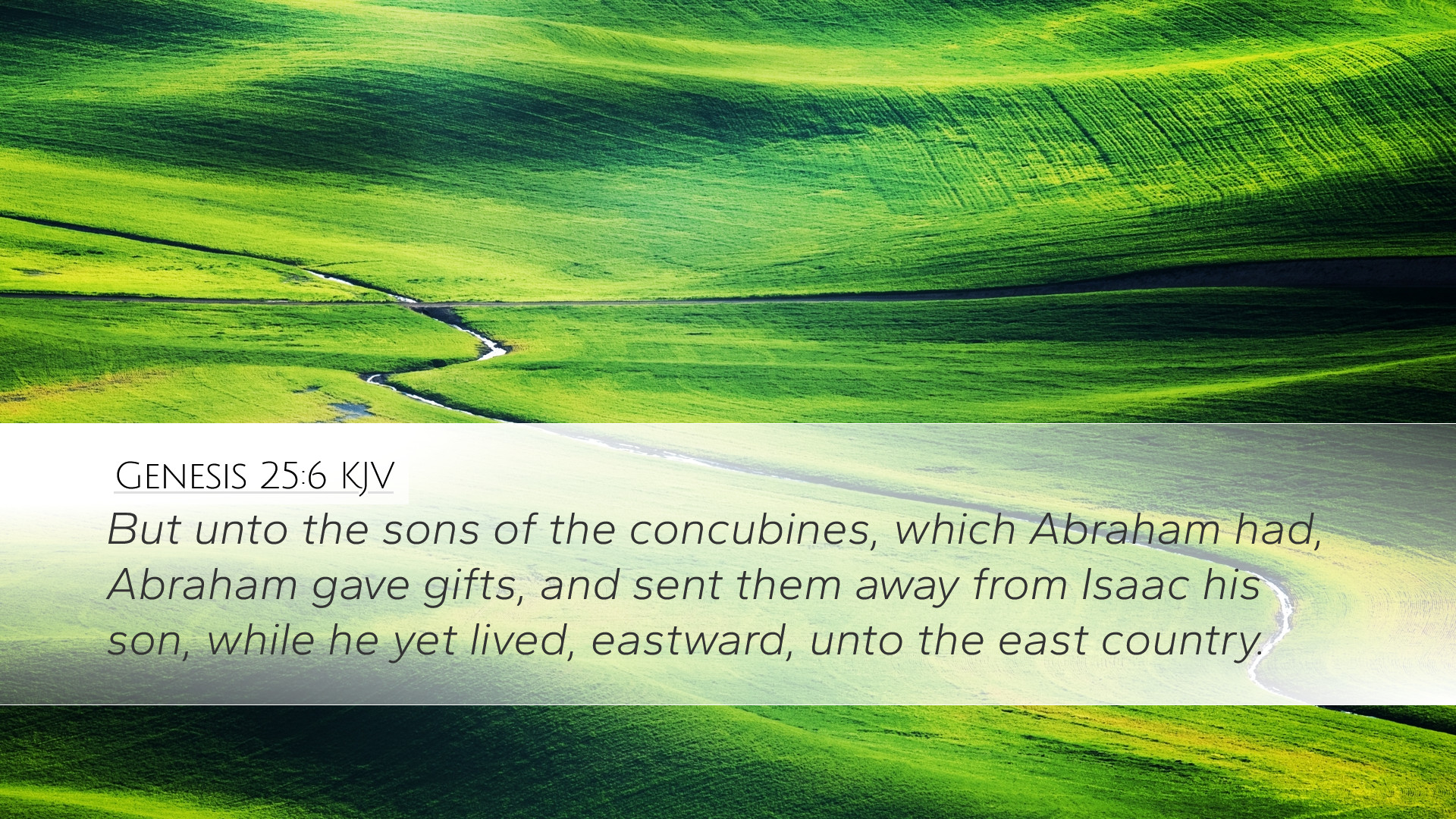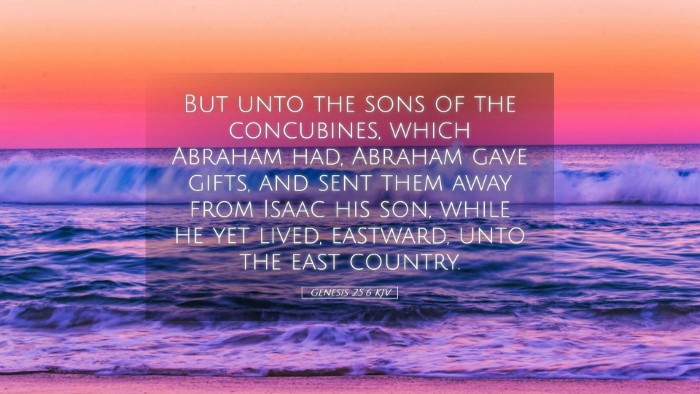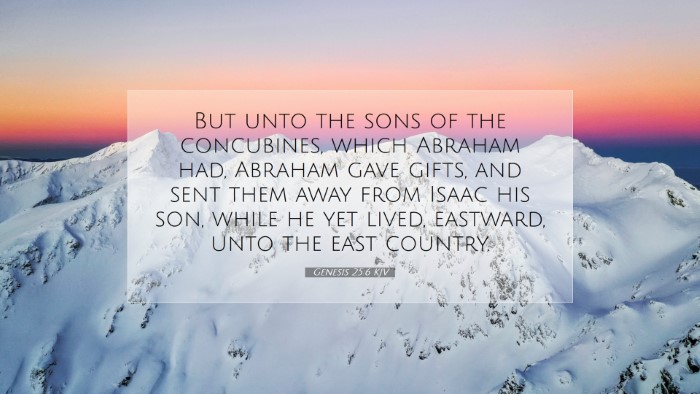Commentary on Genesis 25:6
Verse Reference: Genesis 25:6 - "But unto the sons of the concubines, which Abraham had, Abraham gave gifts, and sent them away from Isaac his son, while he yet lived, eastward, unto the east country."
Introduction
This verse provides insight into the familial relationships and distribution of legacy established by Abraham, the father of the faith. The sum of Abraham's generosity and judicious decisions in managing his estate is pivotal for understanding the sociocultural context of the Abrahamic narratives. This commentary synthesizes insights from noted biblical scholars including Matthew Henry, Albert Barnes, and Adam Clarke.
Contextual Background
Genesis 25 occurs after the death of Sarah and chronicles the continuation of Abraham's lineage. The preceding chapters highlight Abraham's covenant with God and the significant roles his children play in the unfolding of biblical history.
Abraham's Legacy
According to Matthew Henry, the narrative emphasizes Abraham's careful stewardship of his inheritance. While Isaac remains the chosen heir, Abraham's gift to his other children serves to honor them and maintain peace within the family. This act ensures that the blessings received do not lead to jealousy or conflict amongst his progeny.
Gift Giving and Sending Away
Albert Barnes elaborates on the nature of the gifts given to the sons of the concubines. He interprets this as a demonstration of Abraham's benevolence, providing for his other children while delineating their status in relation to Isaac. The act of sending them eastward signifies both a physical and symbolic distancing from Isaac, safeguarding the line intended to carry forth God's promises.
Spiritual Implications
Adam Clarke highlights the spiritual lessons inherent in this verse. He notes that the gifts Abraham bestowed were not merely material but also represent the spiritual legacy and lessons imparted to his offspring. The act of sending them away could symbolize the need to separate those not included in the divine promise while still affirming the inherent worth of every family member. This sends a message about God's general grace, which extends to all, even if not equally chosen for the covenantal promise.
Theological Reflections
This passage invites theological reflection on the interplay of grace and election. While Isaac is the primary heir, God's grace does not eliminate the value of those not in the直接 line of promise. Some key reflections include:
- God's Sovereignty: The narrative illustrates God's sovereignty in choosing Isaac as the heir while allowing Abraham to express love towards other children.
- Parenting and Legacy: There is a record of how Abraham managed familial responsibilities, which can serve as a model for contemporary leaders.
- Inclusion and Exclusion: The treatment of Abraham's other sons reminds us of the complexities of being part of a chosen community while recognizing the universality of God's call.
Personal Application
For pastors, students, and theologians, this passage encourages the exploration of one's own legacy and responsibilities regarding familial relationships:
- Generosity: Reflect on how to be generous with not only material goods but also spiritual wisdom.
- Conflict Resolution: Consider methods of promoting peace among family members and within congregational settings.
- Faithful Stewardship: Evaluate how you steward the resources, gifts, and relationships God has given you.
Conclusion
Genesis 25:6 serves as a poignant reminder of Abraham's legacy and the implications of familial relationships as they relate to divine promises. The insights from Henry, Barnes, and Clarke enrich our understanding of the text, offering valuable lessons on grace, stewardship, and the complexity of human relationships within God's greater plan.


